Skin is the largest organ in human body and everyone has a particular skin type. Knowing your skin type can give you a clear idea of what is best suited to your skin. You can develop your own DIY skin care routine as well as understand what products are best suited to your skin type.
Speaking broadly there are basically 5 primary skin types – oily, dry, combination, normal and sensitive. These skin-types have been further classified; we shall see those details in a bit. Each of these skin types has unique traits when it comes to care and attention. So let’s get going to discover our skin type.
Factors determining Your Skin Type
Genetics:
Genetics is an important factor when it comes to determining one’s skin type. The in-built resistance in your skin to allergies due to food or environmental factors is largely influenced by genes. Like if either of your parents or family members have sensitive skin there are more chances of you inheriting this particular skin type.
Climatic Conditions:
Climate of a place does influence your skin type. Suppose you have an oily skin but when you move to place with dry weather your skin may feel and look less oily as the air lacks moisture in dry areas which leads to dryness in our skin as well.
Hormone Fluctuations:
Hormones like androgens and oestrogens affect skin’s natural oil production. Excess of both these hormones have been linked to acne, PCOS and abnormal body hair growth.
Lifestyle:
Lifestyle issues such as stress, lack of sleep causes excess production of cortisol which may lead to dry skin conditions and inflammation. Similarly our diet also affects the skin, like having too much refined sugar can cause premature ageing.
5 Different Skin Types
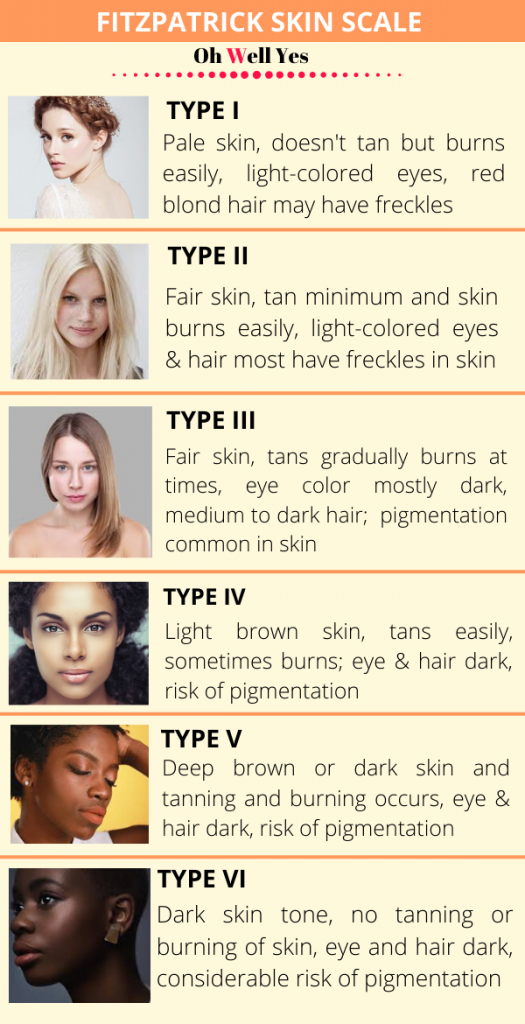
Oily Skin Type
People who oily skins have a shiny look on their face. Their skin looks greasy, especially forehead, chin and nose area. Skin pores in oily skin are quite visible due to over-production of oil and get clogged easily.
These clogged skin pores causes frequent acne breakouts, blackheads and whiteheads. Tropical humid climate is usually worsens oily skin condition, due to sweating. Oily skin also looks shinier during midday.
What causes oily skin?
Sebaceous glands in our skin secrete sebum, oil like substance to guard skin against bacteria and fungus. Sebum maintains suppleness or elasticity as well as the hydration levels of our skin.
Over-production of sebum causes it to pour out of the epidermis and into skin surface through hair follicles and pores to give you an oily look.
Factors determining oily skin
It is mostly the genetic structure which determines oily skin type. Secondly, whenever our body experiences hormonal changes it may cause an over production of oil or sebum, excess oil then blocks and enlarges skin pores causing oily skin.
Certain weather conditions like tropical humid weather may worsen oily skin condition as humidity causes the skin to sweat giving it a greasy look.
Oily Skin is Less Prone To Wrinkles
Oily skin is less prone to wrinkles and fine-lines since sebum keeps skin moisture intact making it difficult for age lines to form.
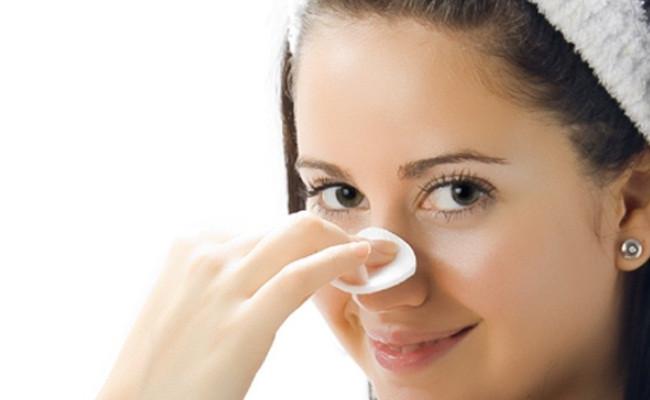
Oily Skin Problems
Skin out-breaks in Oily Skin Type
Due to excess oil production acne, blackheads, whiteheads, bumps and other skin outbreaks are frequent in oily skin. If you have frequent skin out-breaks due to oily skin, visit a dermatologist in case your condition worsens. Also, don’t try to poke acne it can result in a bigger infection.
Can heavy make-up cause oily-skin?
It is not known if heavy make-up causes oily skin but if you have oily skin please avoid using heavy make-up. To ensure your skin-pores can breathe freely wash your face and remove all traces of make-up whenever you are done for the day. Prevent bacteria build-up and dirt accumulation in your make-up brushes by cleaning those at regular intervals.
Oily Skincare Tips
Moisturizing
People with oily skin should go for oil-free moisturizer which feels light and keeps skin hydrated. Many assume moisturizing isn’t necessary for oily skin but if you skip this important step your skin may gradually turn dry.
Exfoliation and Toning
If you have oily skin exfoliation and toning are must for you as these keep pores clean by washing away dirt and excessive oil. But scrub and tone your skin very gently to avoid stripping natural skin moisture.
Use Products with Salicylic Acid
Those with oily skin should use cosmetic products containing salicylic acid which will not irritate the skin. If you have constant acne out-breaks salicylic acid will gently remove dead skin cells, excess oils and dirt build-up.
Neem oil and Tree Tea Oil for Oily Skin
Among organic products neem oil or tree tea oil is also good for oily skin. Both these oils are light-weight so they keep your skin pores unclogged and prevent acne-outbreaks.
Avoid Products with Benzoyl peroxide
Don’t use products claiming to keep your skin oil-free these often contain ingredients like benzoyl peroxide which may dry skin excessively, sending your sebaceous glands on an overdrive to produce excess oil. Always buy oil-free and non-comedogenic skincare products.
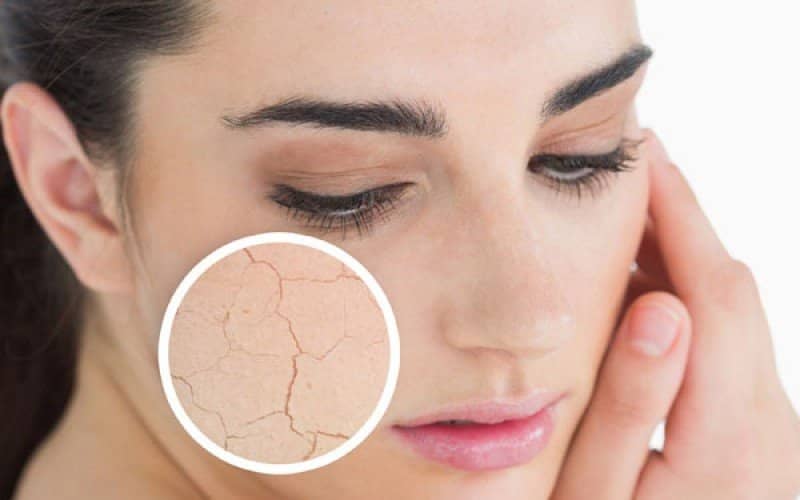
DIY Tip for Oily Skin
Among DIY home facials, ripe papaya extract is very good in controlling excessive skin oil. Wash your face and apply some papaya pulp or 1-2 papaya slice on your skin and keep it for around 15 minutes. After washing you will notice your skin looks clear and less greasy.
Oily Skin Diet
Consuming food items with too much oil, processed cheese and trans-fat may worsen oily skin condition, if you have oily skin read food labels before purchasing. Staying hydrated and making certain lifestyle changes like exercising; consuming fresh fruits and veggies can help in maintaining oil balance in your skin.
Dry Skin Type
How to identify Dry skin type?
People with dry skin experience tightening of skin after bathing. They also have flaky and scaly skin in their heels, knees, elbows, eyebrows and forehead. Itchiness is a common condition in dry skin; it may also lead to redness and rashes.
What causes Dry Skin?
Dry skin is totally opposite of oily skin. Production of sebum is limited in dry skin as a result the skin feels stretched. This lack of natural moisture gives the skin a dried and dull look. The skin also lacks suppleness or elasticity. However, dry skin has no visible pores.
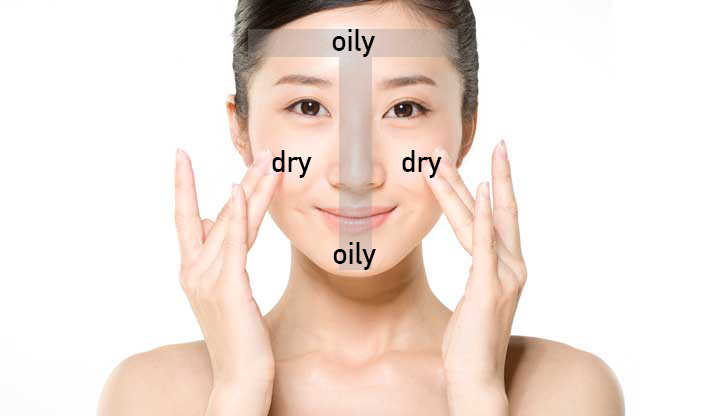
Factors Contributing to Dry Skin
There are several factors causing dry skin the primary of course is your genetic disposition. You have dry skin because it’s in your genes either of your parents may have a dry skin and you have probably inherited this skin type.
Dry Weather
When you live in dry weather your skin may feel naturally dry as the air lacks moisture but this may be a temporary skin condition. A change of weather may actually restore your skin’s natural moisture
Hormonal imbalance
This is another important reason for dry skin, especially if you are ageing. It has been seen that as one ages the skin becomes drier leading to formation of wrinkles.
Dehydration
Just like dry weather dehydration is also a temporary skin condition your skin may feel dry because you aren’t hydrated enough, the best way to prevent this is to increase your water intake.
Dry Skin Care Tips
Avoid Hot Showers
Hot showers strip your skin of its natural moisture it can worsen skin conditions like eczema. Those with dry skin must avoid long, steamy showers as their skin’s natural oil production is low, during cold weather use lukewarm water and restrict your bathing time.
Air-conditioners
If you live in a tropical climate you most probably are used to air-conditioners (ACs) but if you have dry skin make sure you sip water at regular intervals and moisture your skin thoroughly as ACs strip the natural skin moisture.
Humidifiers
Unlike ACs humidifiers can actually benefit those with dry skin. Use a humidifier to lock in indoor moisture during winter months. Cold weather can be harsh on dry skin; moisture your lips, knees, elbows, heels which are more prone to getting chapped or cracked.
Don’t use Products containing Benzoyl peroxide
Using products containing benzoyl peroxide can cause dryness in skin; it may also irritate and cause problems like flaking as well as a burning sensation. So do a patch test before applying.
Sun Sensitivity affects Dry Skin Type
Dry skin type is also more prone to sun sensitivity, so during daytime apply sunscreen. Use natural mild cosmetic products, preferably unscented. Look for ingredients like glycerin, mineral oil, lactic acid, dimithecone, hyaluronic acid that are good for dry skin.

Moisturizing, Exfoliation and Toning
Use a moisturizer that blends well in your skin and seeps within deep layers of skin tissue to keep it moisturized for long. Applying moisturizer everyday is a must for dry skin type. Best time do so is right after a shower as this helps to lock-in skin moisture.
Most people feel it’s okay if you don’t exfoliate or tone dry skin but just like any other skin type, dry skin also needs exfoliation and then toning as it is necessary to remove dirt build-up and dead skin cells.
Diet Tips
Drink plenty of water. Include dairy products like milk, cheese as well as nuts and fish. You can also consume food items containing Omega 3 as it helps to build up skin’s natural oils. Olive and jajoba oil are also beneficial for dry skin.
Combination Skin
It is difficult to identify combination skin. Certain areas of the skin may be oilier than others while some areas tend to be drier or even normal. This skin type also displays sensitivity at times and is the most common skin type.
Typically in combination skin, the T-zone comprising forehead, nose and chin are oily.
Also just like in dry skin, people with combination skin may have chapped lips, tightening in cheeks, dry palms, cuticles, elbows and heels.
Factors contributing to Combination Skin
There are primarily two factors that determine combination skin – Genetics and weather conditions.
Genetics
Your genes play a big role in determining your skin type. So combination skin is no different. You are born with it.
Weather Conditions
Suppose a person is born with oily skin in a tropical area but moves to a place with colder climate eventually her/his inborn skin which is oily will remain but since colder places have less humidity the skin will be less oily while some areas of the skin may even feel dry. Thus, oily skin converts into combination skin.
Other factors determining combination are stress or prolonged use of certain medicines.
Combination Skin Care Tips
Combination skin can be tricky to manage. When using skin care products use mild gel-based cleansers that retain skin moisture but don’t clog skin pores. Look for products having alpha and beta hydroxy acid and retinol.
Natural Products
Use natural skin care products that have aloe vera and cucumber extracts, preferably free of parabens and artificial fragrances. This will keep your skin smooth and free from the risk of irritation and inflammation.
Moisturizing, Exfoliation and Toning
Since combination skin has traits of both oily and dry skin use light-weight, oil free moisturizer for the T-Zone while heavy cream or lotion for your cheeks, elbows, palms and other dry areas. Just like other skin types combination skin also requires exfoliation and toning to maintain skin clarity.
DIY tip for Combination Skin
Among natural facials, you may rub strawberry slices on your skin for 5 to 10 minutes to counter the oiliness. When the skin feels dry apply banana mash with honey and keep it for 15 minutes to provide natural moisture.
Normal Skin
It is rare to find normal skin among adults. Normal skin is actually a well-balanced skin having the right amount of sebum production. Therefore, it is not dry or oily. It feels soft to touch. It may also be sensitivity-proof meaning the skin is not prone to rashes, acne or itchiness or affected by sun sensitivity; although this very rare.
Pores of normal skin are tight which gives the skin a healthy, glowing look as well as a smooth and uniform texture. Most children have normal skin before hitting puberty.
Normal Skin care Tips
Normal skin care routine is not different from other skin types. Those with normal skin should exfoliate once a week and use mild skin care products. Go for organic brands that have natural ingredients.
Avoid sleeping with your make-up on to let it breathe naturally. Among natural ingredients aloe vera is a wonderful ingredient for normal skin as it helps in maintaining the balance between oil and dryness.
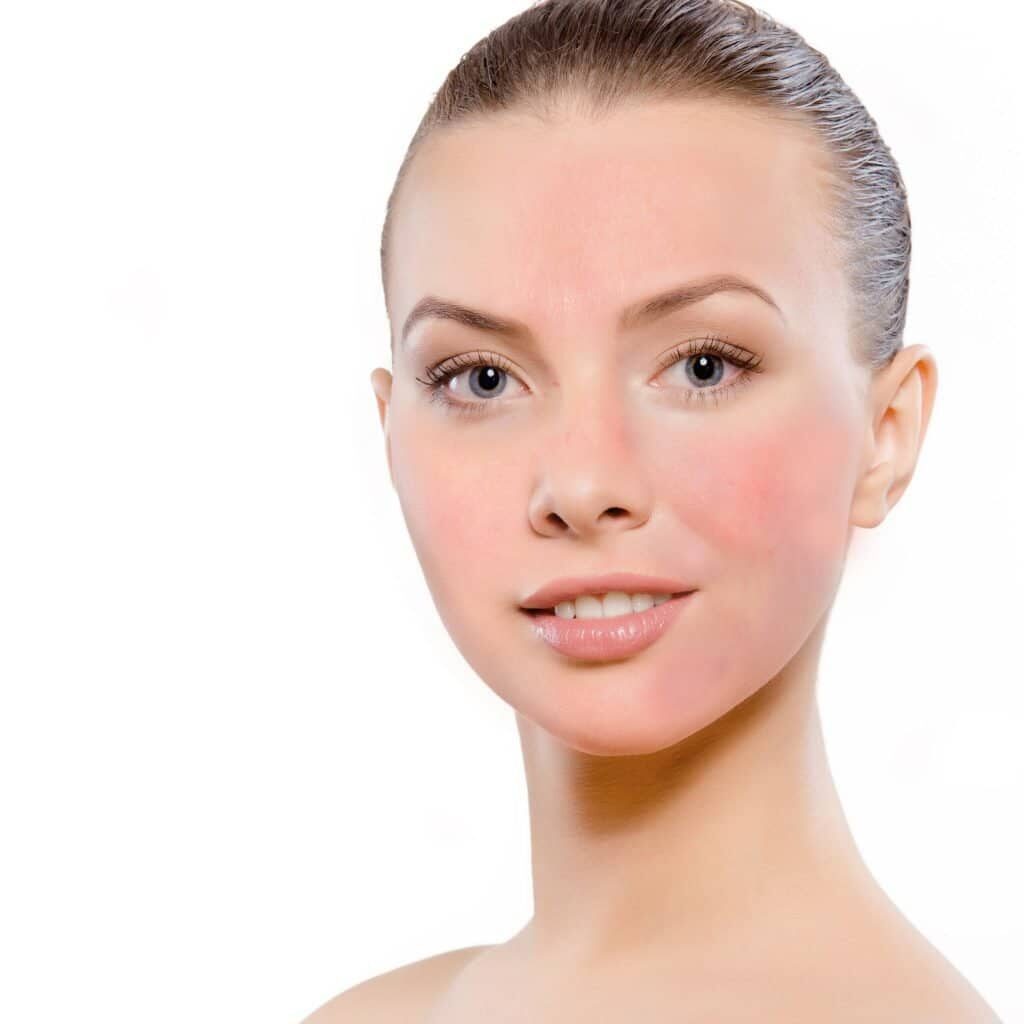
Sensitive Skin
Many skin specialists don’t classify sensitive skin into a different category since all skin types are sensitive to a certain degree. But there are some individuals whose skin sensitivity actually defines their skin type which means their skin is more sensitive to certain things like food, pollution etc.
How to identify Sensitive Skin
People with sensitive skin experience rashes, redness and itchiness as a reaction to the thing they are sensitive to. These could be anything like a particular food item or cosmetic products or sun, or any item serious enough to trigger a reaction.
Sensitive skin is most common in Caucasians and Asians, who have porcelain skin.
Factors Determining Sensitive Skin
Sensitive skin is primarily defined by its degree of sensitivity to certain things.
Like consuming certain food items may cause allergies; or the skin may be sensitive to sunlight by getting burns and tanning.
Certain make-up products which contain harsh chemical can also trigger a reaction in sensitive skin.
Sensitive Skin Care Tips
Since sensitive skin is so easily prone to skin inflammation and allergies and other outbreaks it is important to do a patch test before applying a skincare product.
Go for skincare brands which are free of chemicals and artificial fragrance. Stick to tried and tested home –based skincare remedies.
Various Skin Conditions
These are some skin conditions commonly found in oily, dry and sensitive skin types. Most experience at least one of these conditions in their lifetime. These skin conditions are primarily caused by your DNA build-up, weather conditions and food habits.
Acne
Most people suffer from acne as they hit puberty. Acne is caused when your skin pores are clogged with excessive dirt and sebum or natural oil production. Some common acne conditions are pimples, cystic legions, bumps and red lumps on skin, blackheads and whiteheads. However, if you have serious hormonal fluctuations, your skin may have an acne outbreak in your older age as well.
Atopic dermatitis (eczema)
This another very common skin condition characterized by mild to severe itchiness, red patches on your limbs, face and scalp. The skin later develops a thick scaly form. It is mostly caused by reaction to food or allergies due to dust or an underlying medical condition.
Seborrheic Dermatitis
Seborrheic dermatitis is another very common skin condition whose exact cause is not known. It causes flaky and scaly skin especially in your scalp, nose, eyelids and eyebrow area. If you have an oily scalp; you will experience sticky dandruff and itchiness. This condition tends to flare up in winters and in dry weather conditions.
Rosacea
Rosacea is similar to acne outbreaks and causes small bumps, redness and rashes in skin. But it mostly occurs in older woman experiencing any hormonal fluctuations.
Skin inflammations, allergies and irritations
Skin inflammations are common in sensitive skin it mostly causes skin flare-ups, redness and rashes. Most inflammations are allergic reactions to certain food items or due to environmental conditions.
There are times when your skin may react adversely to certain chemical present in skin care products causing irritation, itchiness and rashes.
Athlete’s Foot
If you have thick scaly skin on your foot or between toes it is likely you have athlete’s foot. It is a fungal infection which can be severe if you experience burning sensation, however this is easily treatable. This condition is commonly found in athletes who train in heavy footwear which restricts airflow to the skin.
